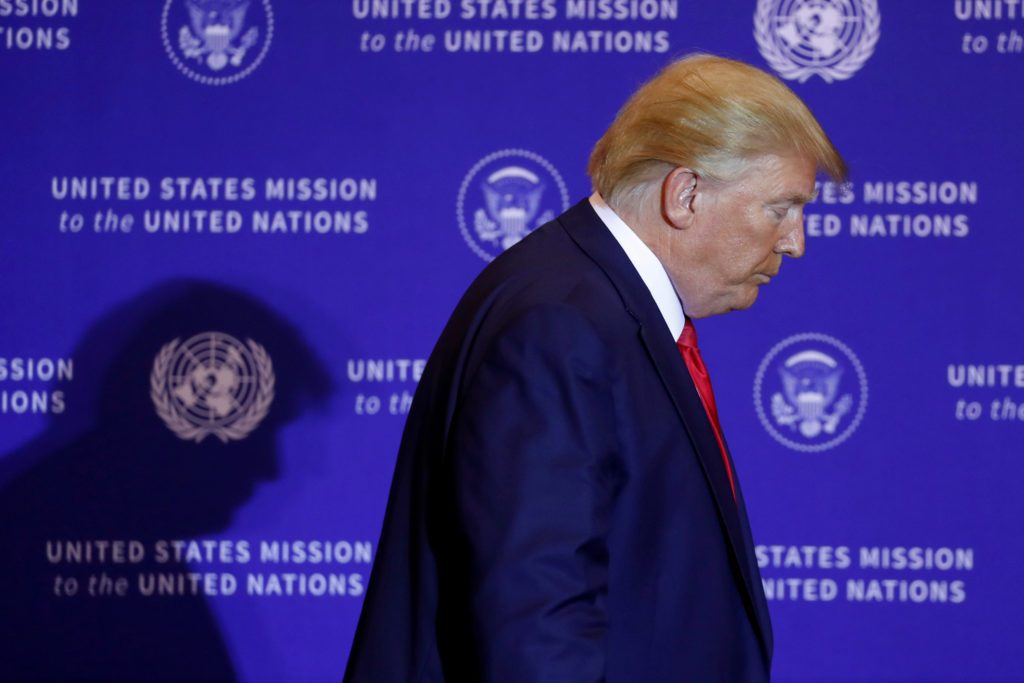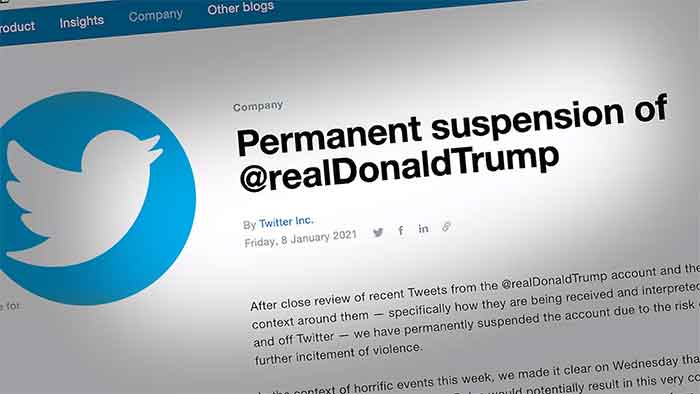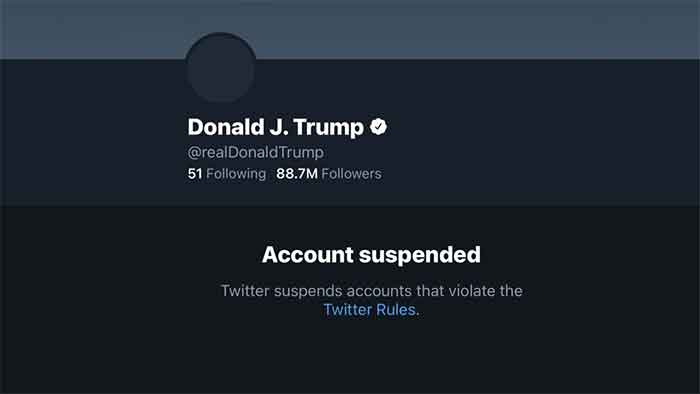
Sawing off the branch you sit on can hardly be the best of policies. But that all depends on the nature of the branch. US President Donald Trump has huffed himself into another small historical moment, going on the offensive against social media companies using the very language his faux progressive opponents use against them. All seem to be in agreement on one point: the Silicon Valley giants have become too powerful, runaway monsters in the stakes of high influence. But sharp divergences and attitudes exist on how such companies are to be controlled, let alone disciplined.
The view on how best to chastise such companies come from opposite ends of the information spectrum. For the enraged and the offended, these internet giants should be punished for distributing content created by users who might, for instance, be seen to be glorifying violence or giving truck to the unsavoury. Their view seems to be that humanity cannot be trusted with viewing matter that might, on the off chance, prove dangerously galvanic.
This is the view taken, for instance, by comedian Sacha Baron Cohen. “One thing is pretty clear to me,” he scoldingly told his audience at last year’s Never Is Now Summit hosted by the Anti-Defamation League. “All this hate and violence [in the world] is being facilitated by a handful of internet companies that amount to the greatest propaganda machine in history.”
For Baron Cohen and travellers of like mind, the problem in all of this is the protection provided by Section 230 of the Communications Decency Act. The provision confers immunity on internet companies for the use-generated content they host.
For Trump, such companies should be punished for misusing their immunity from prosecution for actually banning or flagging undesirable content or opinions. In short, there should be no limits on the quality or nature of user-content used or posted. For the first Twitter President in history, it was all too bruising to be “flagged” for content posted on Twitter taking issue with the response to Monday’s lethal arrest of George Floyd in Minneapolis. On Friday, Trump tweeted the line, “When the looting starts, the shooting starts”. It was a phrase Miami’s police chief Walter Headley used in 1967 in response to, as reported at the time, a “crackdown on … slum hoodlums”. He spoke with reassurance for the head-kicking enthusiasts. “We don’t mind being accused of police brutality.”
Trump spruced up that version – slightly. “Looting leads to shooting, and that’s why a man was shot and killed in Minneapolis on Wednesday night – or look at what just happened in Louisville with 7 people shot. I don’t want this to happen, and that’s what the expression put out last night means.”
Twitter has shown interest in the US president of late. Flagging and hiding Tweets, it also added a fact-check link to one of Trump’s messages. All this was simply too much, a lingering, cyber stain. The Executive Order that followed was cranky and a bit confused, taking issue with the wielding of power by internet companies “over a vital means of communication to engage in deceptive or pretextual actions stifling free and open debate by censoring certain viewpoints.” Accordingly, “Section 230 was not intended to allow a handful of companies to grow into titans controlling vital avenues for our national discourse under the guise of promoting open forums for debate, and then to provide those behemoths blanket immunity when they use their power to censor content and silence viewpoints that they dislike.” In removing or restricting access to content, such companies were “engaged in editorial conduct” and would, for that reason, have she shield of immunity removed.
The order is not likely to have much effect. The legal cognoscenti see it has having little bearing, a wasteful act of sinister flatulence. Former Justice Department inspector general Michael Bromwich considered it “a hoot. Unlawful and unenforceable.” According to Joshua Geltzer, executive director of the Institute for Constitutional Advocacy and Protection, it would be hard to make a case that Twitter’s labels on Trump’s tweets fell outside the immunity of section 230. Nor could Trump sue for defamation, given that Trump, not Twitter, added the element of falsity to the affair.
Jameel Jaffer, director of the Knight First Amendment Institute at Columbia University sees the birth of the order as “unconstitutional because it was issued in retaliation for Twitter’s fact-checking of President Trump’s tweets.” The concern for Jaffer is that the order entails the possibility of intimidation and investigation of internet companies. “There may well be regulation, and legislation worth considering in this sphere, but whatever else this order may be, it is not a good faith effort to protect speech online.”
What the latest moves have done is precipitate something of a conflict within the usually amoral social media sphere. The titans seem to be in disagreement on how to approach the demagogue in the White House. Do we let him bark and bellow without inhibition, or should some health warning label be attached? Mark Zuckerberg makes Facebook’s position disingenuously clear: such companies should not be arbiters of truth. (Unfortunately for the CEO, he expressed that view on a news outlet that often prefers the fictional narrative to the sturdy truthfulness.) “Private companies probably shouldn’t be, especially these platform companies, shouldn’t be in the position of doing that.”
Twitter CEO Jack Dorsey sees it differently. “Our intention is to connect the dots of conflicting statements and show the information in dispute so people can judge for themselves. More transparency from us is critical so folks can clearly see the why behind our actions.”
Neither CEO should be taken too seriously. Twitter will make its policies as it sees fit (consider, for instance, its righteous civic integrity policy); ditto Facebook. Neither – and here Zuckerberg is right – should be arbiters, but they are. They have shaped, directed, cajoled, mocked and massaged the gullible, the idiotic and the deluded. And for all the fuss being caused by this Order, Facebook it is not considered a serious target. As Ian Bogost and Alex Madrigal insist, the Trump campaign effectively ceded “control to Facebook’ ad-buying machinery” in 2016, as it is doing now. Internet boffin Zeynep Tufekci can only agree: the relationship between the president and the Facebook CEO “is so smooth that Trump said Zuckerberg congratulated the president for being ‘No.1 on Facebook’ at a private dinner with him.” Time to break bread again.
Dr. Binoy Kampmark was a Commonwealth Scholar at Selwyn College, Cambridge. He lectures at RMIT University, Melbourne. Email: [email protected]
SIGN UP FOR COUNTERCURRENTS DAILY NEWS LETTER











































